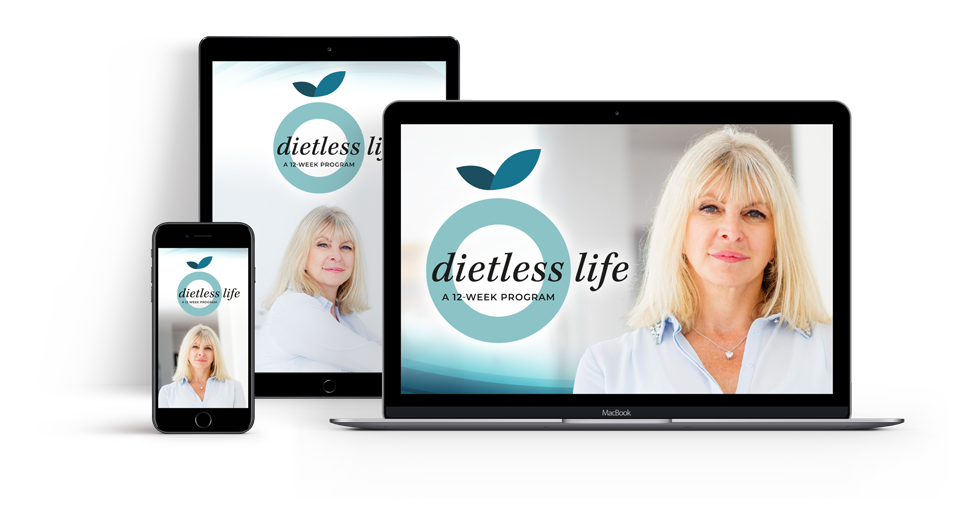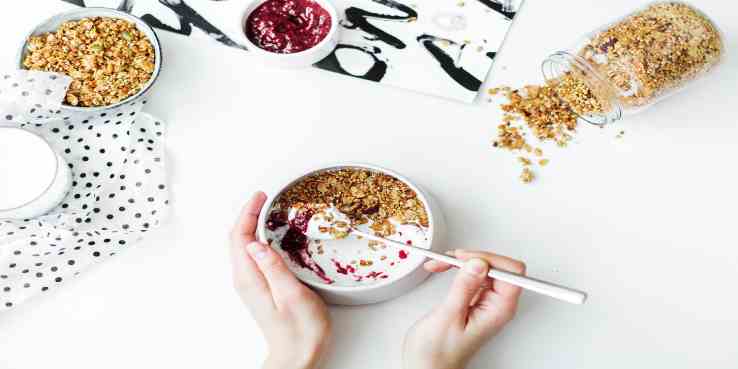If we are what we eat, think, do…. then the good news is that lifestyle changes can change our lives!
We are in control of what we eat, think and do, therefore we are empowered to make choices that impact our day to day living and health. It is reassuring to know that we don’t have to wait until things go wrong and hand our health over to doctors and overstretched health professionals, we can be the expert on our own bodies and the leader of our lives.
This article is a simple guide to how to be healthy, sharing simple, practical ways we can take ownership of our personal power to live a happy, healthy and more fulfilled life through what we eat, think and do.

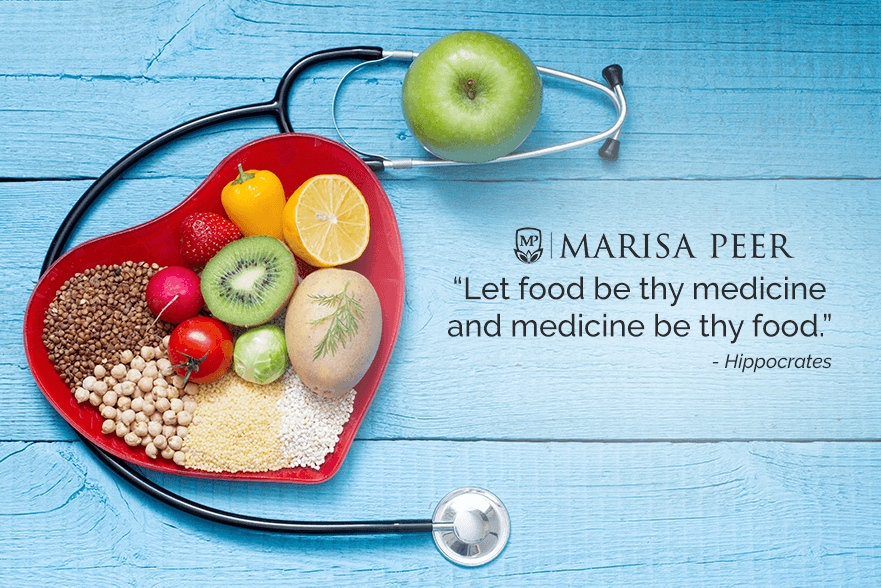
We all know that eating vegetables is good for us, you were likely told to ‘eat your greens’ as a child. However, let’s face it, most kids would probably prefer to eat sweets and party food than spinach and kale! At some level we may have rejected the need to eat healthily as a chore and a bore. These subconscious beliefs stay with us into adulthood, where we continue to associate sugar and sweet treats as exactly that – a ‘treat’ – a comfort, something that will make us feel better.
We continue to subconsciously develop associations, especially with so much ‘junk food’ constantly being advertised and marketed to us, claiming it will make us happy.
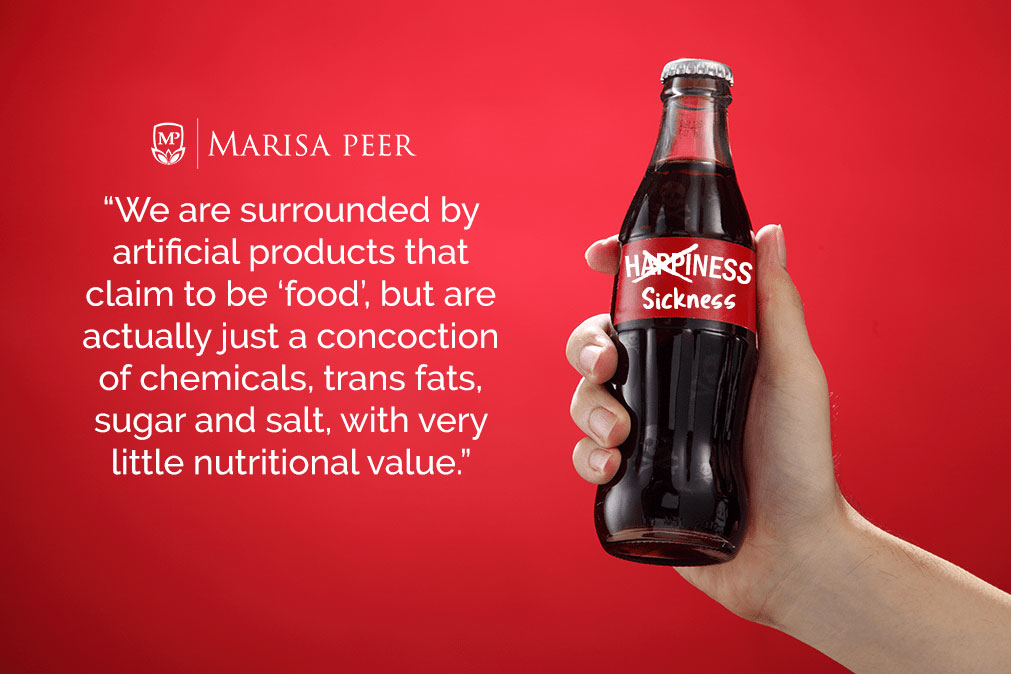
“Don’t dig your grave with your knife and fork” – Old English Proverb
What A Doctor Says
Dr Myhill says: “All medical therapies should start with diet. Modern Western diets are driving our modern epidemics of diabetes, heart disease, cancer and dementia; this process is called metabolic syndrome. In Prevent and Cure Diabetes: Delicious Diets, Not Dangerous Drugs I explain in detail why and how we have arrived at a situation where the real weapons of mass destruction can be found in our kitchens. Importantly, the book describes the vital steps every one of us can make to reverse the situation so that life can be lived to its full potential.”
Dr Myhill, was the Hon. Secretary of the British Society for Ecological Medicine, which focuses on the cause of disease, prevention and treatment through diet, supplements and avoiding toxic stress. Dr Myhill, has spent “over thirty years bringing together medical testing and scientific knowledge to help people with debilitating chronic conditions realise the importance of nutrition and lifestyle.” She says:
“I spend more time talking about diet than I do all other subjects put together. This is in direct proportion to its importance. It may be the most difficult thing I ask people to do, but also the most vital. People want me to be prescriptive about diet and tell them exactly what they can and cannot do, but there is no such universal prescription – we are all so very different with respect to allergies, likes, dislikes, gut function, deficiencies, ethinic background and so on.”
Whilst there is no set prescription, there are certain ‘rules of the game’ which we can all adhere to. Here are some top suggestions for food to AVOID and ADD into your diet:

AVOID
Dairy
In this article Is Dairy Bad For You? Marisa Peer shares that milk has a growth hormone that not only tells your body to grow by 300%, but has been linked to cancer. I use almond milk instead, which is also a great source of protein and some products claim to offer 50% more calcium than dairy milk. If you have to consume milk, try to make sure that you use organic milk where possible, to limit the amount of antibiotics and other unwanted additions.

Sugar
Our bodies are designed to get energy from the mitochondria, which are the ‘powerhouses’ in each of our cells. This requires oxygen and nutrients and is the cleanest most efficient way of sustaining long term energy production. Sugar on the other hand creates a temporary energy hit, but can be toxic on our bodies. This can lead to long term metabolic syndrome – losing control of blood sugar levels – increasing the risk of heart disease, stroke and type 2 diabetes. Sugar is considered to be as addictive as cocaine and have a similar effect on the body. This article on the Facts About What Sugar Does to Our Bodies has more information.

Wheat And Gluten
Or “glue” as Marisa Peer refers to it when she says: “The word glutinous means sticky and is an adjective derived from gluten. Gluten is like glue and digestive issues arise when we eat glue for breakfast, glue for lunch and more glue for dinner and snacks.” In her book, You Can Be Thin, Marisa says: “The gluten in wheat and other cereals is a big problem as it’s hard to digest and can cause allergies, fatigue, bloating, weight gain and Coeliac disease… When your baguette or pizza is broken down in your body it goes back to glue and coats your intestines with a sticky residue so that hours later if you eat some fresh berries or vegetables they will stick to this glue-like matter, this pap coats your gut, and ferments instead of being digested. As a consequence your body is crying out for nutrients not calories. You are full of food but still hungry because your body cannot get enough nutrition from the indigestible food you have put in it.”

Processed Foods And Refined Carbs
These foods have been linked to obesity, chronic illness and disease. In Perfect Weight Forever, Marisa says “When food is refined and processed, it is so chemically altered that our body cannot break it down properly or get nutrition from it.” Dr Myhill says that the “cons with ‘standard western’ diets is that they are ‘high in refined carbohydrates such as sugar, fruit and fruit juice, potato, cereal, grains and junk food. This ‘induces metabolic syndrome with all its complications including fatigue, obesity, diabetes, tooth decay, arterial and heart disease, cancer and dementia.” This Good Carbs vs Bad Carbs comprehensive article has more information.

Margarine
Margarine is also considered one of the top 5 Foods to Avoid For Healthy Eating. Marisa states “margarine is but ONE MOLECULE away from being PLASTIC.To prove to yourself just how bad for you margarine is, buy a tub and leave it in your garage or a shaded area outside. Within a couple of days you will notice that no flies, rodents or insects will go near it (that should tell you something!) You will notice that it doesn’t rot or smell, because it has no nutritional value; nothing will grow on it. Even microorganisms won’t grow on trans fats. It doesn’t decompose – why? Because it is nearly plastic. It’s about as real and healthy as the tub it came in and you wouldn’t melt it and eat that, would you?”
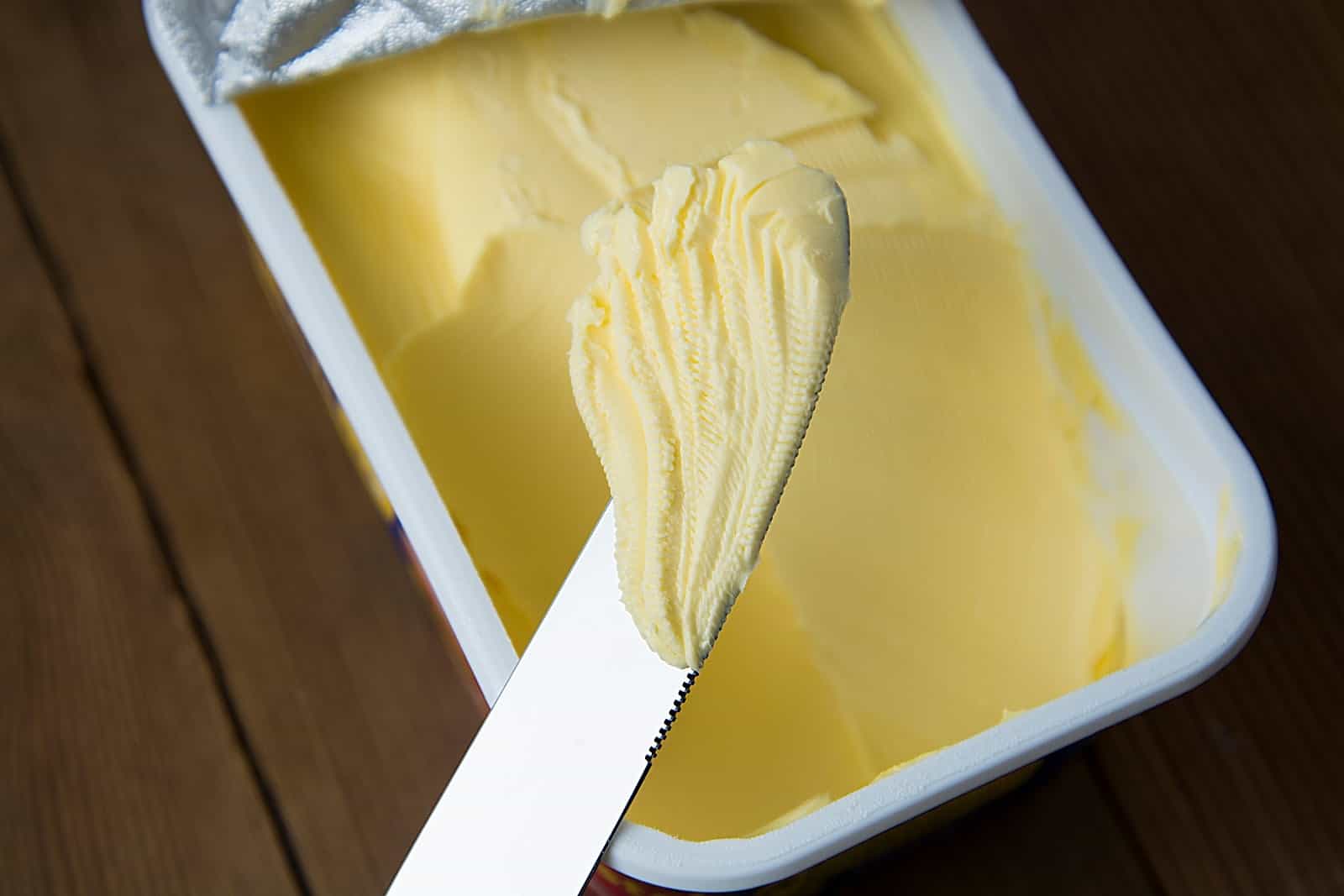

ADD:
Vegetables
It is important to eat as many vegetables as possible, especially leafy greens. Variety is important as it provides diversity to the microbiome in our guts, which has a direct link to our health, as the majority of our immune system resides in our gut. It has been suggested that we should aim to eat a rainbow of veg where possible – filling your plate with as many colours as you can. Ideally we want to aim for organic local produce where possible (or even grow your own), to ensure it’s not covered in poisonous pesticides and toxic chemicals, which is why it is also so important to wash fruit and veg before eating.
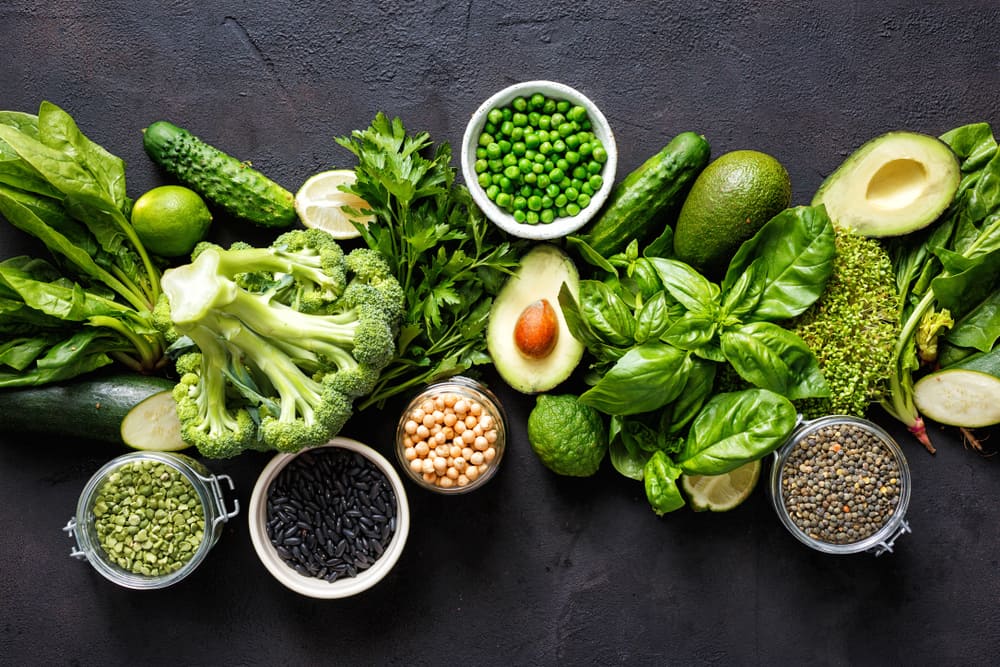
Instead of seeing this as a chore or something you ‘should’ do, reframe it in your mind to make positive associations with how good it will feel to be healthy, vibrant and full of energy. Imagine the mitochondria of each cell is like a mouth – imagine these mouths are open and drinking in all the nutrients you provide, so they can make you lots of lovely energy and help keep your body healthy and well.
#DailyVeg challenge
One way to make positive associations is to make the new behaviour fun! Have a competition with yourself, or friends, to see how many vegetables you can consume in a single day (I think 32 was my highest score!) You could even post your numbers using the hashtag #DailyVeg each day and inspire others to do the same. This makes it fun trying to pack lots of lovely veg into every meal. For example, for breakfast you could try a spinach and mushroom omelette with asparagus/avocado/roasted pepper or a bubble and squeak hash-brown made with any leftover veg. Lunch could be a salad or soup and for dinner you could have a stir fry or roasted veg. I am sure you can get creative in ways to challenge yourself to eat more veg. How many can you eat each day?
Protein
Protein is important for our bodies to recover, repair and grow, so it should ideally feature in every meal. According to the British Nutrition Foundation “Protein is essential for growth and repair of the body and maintenance of good health… Protein from animal sources (e.g. meat, fish, eggs and dairy products) contains the full range of essential amino acids needed by the body. However, vegans and vegetarians can get all the amino acids they need by combining different plant sources of protein, e.g. pulses and cereals.”
Good Fats
John Yudkin who was the Professor of Nutrition and Diabetes, Queen Elizabeth College, London said “Fat is the most valuable food known to man.”
The common myth that all fat is bad for us and we should be eating ‘reduced fat’ or even ‘fat-free’ has been proven wrong. We need to eat fat to burn fat. However, the truth is that some fats are healthier than others. Once we start to understand the different types of fats, we can start to make healthier choices.
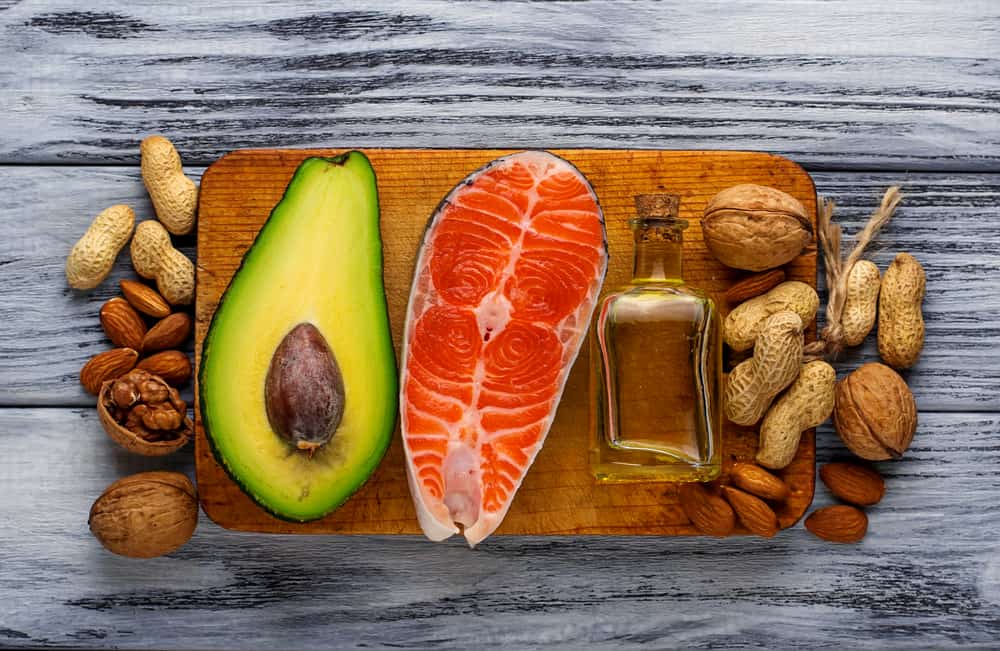
The Different Types Of Fats
Monounsaturated fats and polyunsaturated fats are considered ‘good fats’, as they are good for your heart, cholesterol, and overall health. There can be controversy over saturated fats, as nutritional experts and scientists differ on their views on how it affects health. However it is agreed that artificial trans fats, made industrially by “hydrogenating” vegetable oil, are considered harmful and can cause heart disease. The most common sources of trans fats include cakes, pies, frosting, fried foods, cookies and biscuits made with margarine. Marisa Peer calls Trans Fats ‘Frankenstein foods’ as they are artificially created and unnatural.
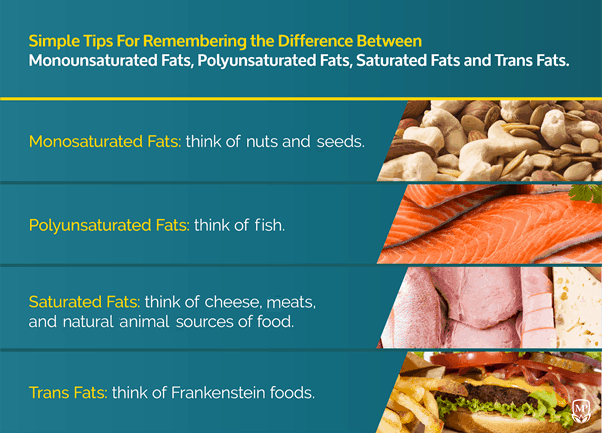
Good Fats Include:
Natural oils
Natural oils such as olive and flaxseed oil also provide a source of Omega 3, which we need to get into our diet as our body doesn’t produce it itself. “Omega-3 fatty acids reduce inflammation, and thus may help lower the risk of cancer,” according to the MD Anderson Cancer Center. Recent research also suggests that extra-virgin olive oil preserves memory and can protect the brain against Alzheimer’s disease.
The best ways to use good oils
Olive oil is great drizzled on salads and can be used for cooking at a lower temperature (up to 180°C / 350°F) , as it has a lower smoke point – the point at which it breaks down and smokes. Flaxseed oil shouldn’t be heated, so use in salads or smoothies.
Everyday health says: “Avocado oil is high in monounsaturated fatty acids and can promote healthy cholesterol levels and enhance absorption of some nutrients, according to a review of avocado benefits published in the May 2013 Critical Reviews in Food Science and Nutrition. Avocado oil also has a high smoke point and is therefore one of the best oils for high-temperature cooking. It can be used for stir-frying, sautéing, or searing,” Haas says.
Nuts
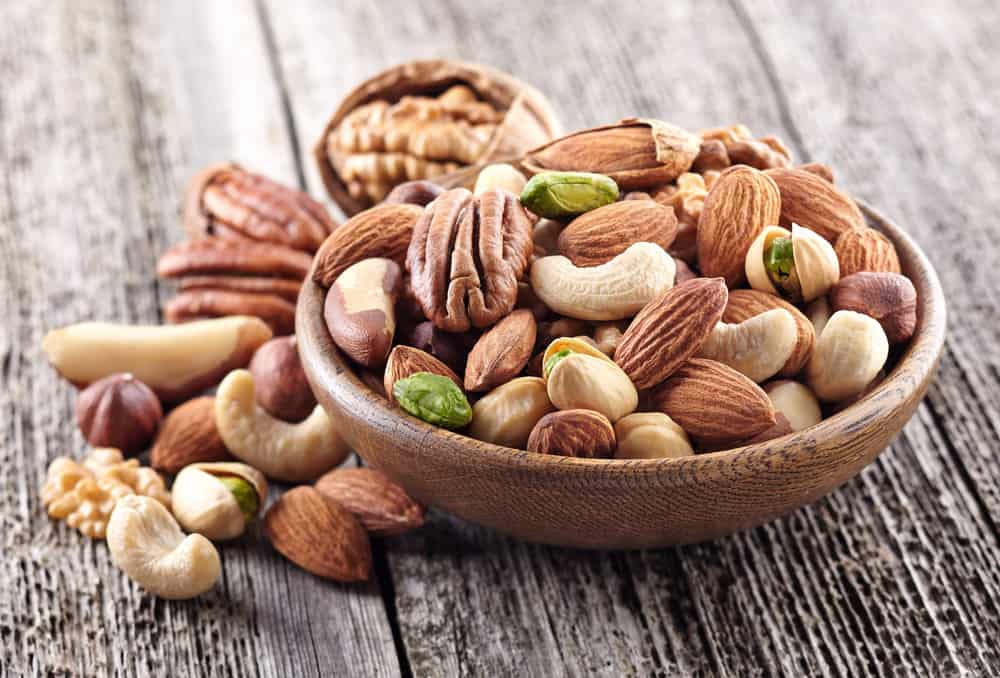
Nuts are a good source of fibre, protein, vitamins and minerals. According to Healthline: “Most of the fat in nuts is monounsaturated fat, as well as omega-6 and omega-3 polyunsaturated fat. However, they do contain some saturated fat. Nuts also pack a number of vitamins and minerals, including magnesium and vitamin E. Many studies have investigated the health benefits of increased nut intake… For example, nuts may reduce risk factors for metabolic syndrome, such as high blood pressure and cholesterol levels…. Furthermore, nuts may reduce your risk of other chronic diseases. For example, eating nuts may improve blood sugar levels and lower your risk of certain cancers.”
Seeds
Seeds are also extremely nutritious and can help reduce blood sugar, cholesterol and blood pressure when eaten as part of a healthy diet. According to SAGA “Seeds contain high levels of essential fatty acids, the full profile of amino acids needed to form complete and digestible protein, plus vitamins A, B, C and E and the minerals calcium, magnesium, potassium, zinc, iron, selenium and manganese.” You can get really yummy seed shaker sets, with roasted seeds or easily roast some yourself with a little (gluten free) soy sauce. Yum!
For more information on a healthy diet for a healthy life see The Foods I Rate and Hate. You can also enjoy this Free Mini Course: Health and Weight to develop and maintain the healthy body you desire.
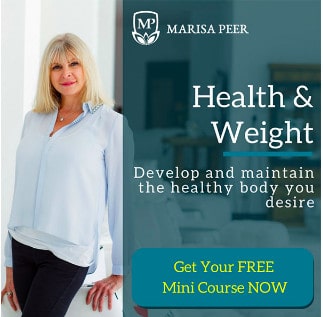

As mentioned, a good way to change eating habits is to change the way we think and the associations we have with certain foods. In You Can Be Thin, Marisa Peer says “Changing your eating habits is not enough, you must change your thoughts, beliefs and words as well.” She explains that “moving towards pleasure and away from pain is a survival instinct. …Your brain is programmed to constantly move you towards pleasure and away from pain…because avoiding pain is how we survive.”
For example, we may have previously seen cake as a treat, a reward, a comforting indulgence. However, instead of linking pleasure to it, we need to vividly imagine it poisoning our bodies and the pain of being sick, fat and lethargic. We know that healthy cells do not need addictive sugar – so at best, sugar cravings are feeding a damaging habit and at worst, feeding disease.
Instead we can link pleasure to nourishing our cells with all the nutrients they need to thrive, so we can enjoy feeling our best and leading a happier, healthier life. By linking pleasure to healthy habits and pain to unhealthy ones, we can rewire our mind to support a more healthy lifestyle and teach our bodies how to be healthy. Our thoughts have the power to shape our reality, not just through ‘positive thinking’ but through physical biochemical reactions in the body.
Dr Lissa Rankin takes a “a closer look at epigenetics” in her book Mind Over Medicine and states “changing your thoughts can actually change how your brain communicates with the rest of your body, thereby altering the body’s biochemistry.” She asserts that “the mind’s belief can actually alter the body’s physiology.”
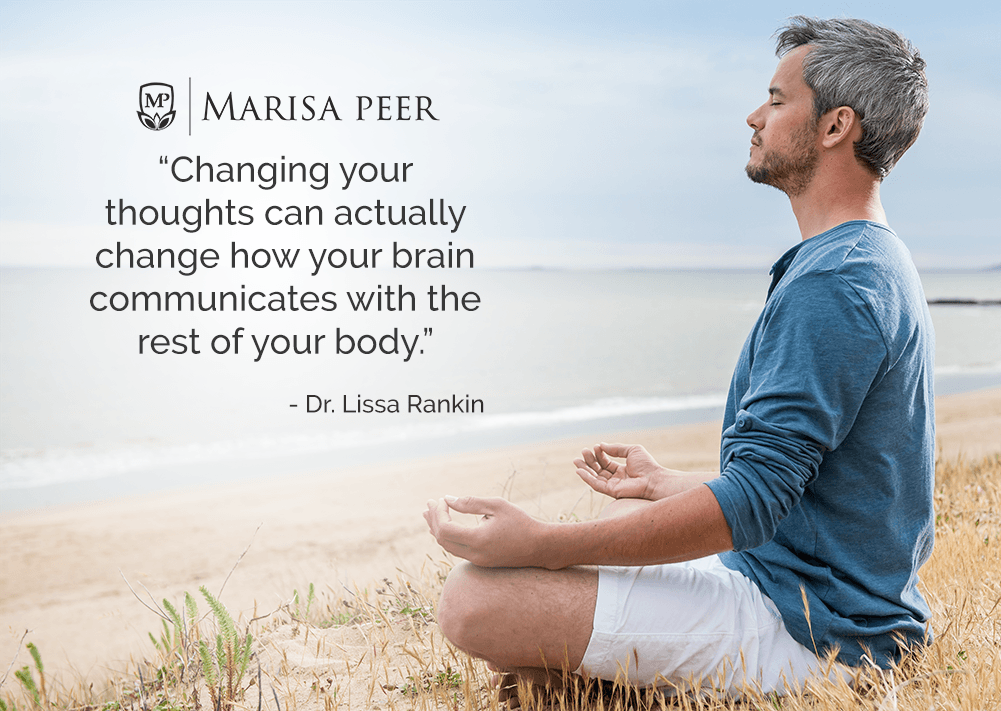
In The Biology of Belief, Bruce Lipton explains the link between the mind and your biology, stating: “If you can change your beliefs you can change your life at a cellular level.” He also explains the science of how our beliefs are programmed into us as children, without our conscious control: “The fundamental behaviours, beliefs, and attitudes we observe in our parents become “hardwired” as synaptic pathways in our subconscious mind. Once programmed into our subconscious mind, they control our biology for the rest of our lives …or at least until we make the effort to reprogram them.”
Marisa Peer created Rapid Transformational Therapy™️(RTT) in order to teach people how to reprogram their beliefs and behaviours through the power of their mind. RTT brings together the most beneficial principles from neuroscience, NLP, CBT, hypnotherapy and psychotherapy and has won many awards for its effectiveness.
“What we are today comes from our thoughts of yesterday,And our present thoughts build our life of tomorrow: our life is the creation of the mind.”- The Dhammapada.
RTT works by identifying old beliefs deep within our subconscious, that have often become so automatic that we don’t even know that they are there. By understanding the root cause of an issue in the past, people are empowered to choose their futures and reprogramme their minds for success. By working directly with the subconscious mind, we can instruct and reprogram the mind to activate the body’s own natural intelligence on how to be healthy.

In Marisa Peer’s ‘Rules of the Mind’ she explains “The most powerful potential on the planet comes from your mind. Your words and thoughts are powerful and your mind is always listening. Every word you say and thought you think becomes a blueprint that your mind and body work to turn into reality. The strongest force in you is that you must act in a way that consistently matches your thinking.
Your mind does not know, and indeed it does not care if what you tell it is right or wrong, good or bad, true or false, helpful or very unhelpful – it just lets it in. Your mind’s job is to act on the words you tell it. Your job is to give your mind much more powerful, descriptive and positive words.
Understand the rules of the mind so your mind works with you, not against you. I am a great believer that we can’t fix what we don’t understand. I see so many clients who try to battle their minds using sheer force or willpower. Equally, they try to punish their bodies and force them to act or look different. They try to force family members and their children to change using cajoling, bribes or punishment with little success and a lot of frustration. You can’t fight your wiring, but when you understand how and why your mind operates you can then work with it, instead of against it, to get all the changes you want.”
Our thinking, imagination and beliefs shape our perception of reality and the meaning we attach to the world around us. We can change our thoughts and reprogram our beliefs, therefore we are infinitely more powerful than we realise. By understanding the ‘Rules Of The Mind’ we can work with our mind rather than against it.

Do what you love and love what you do. So many of us are consumed by the daily to do list that we don’t even have time to just stop to breathe, let alone do the things we love.
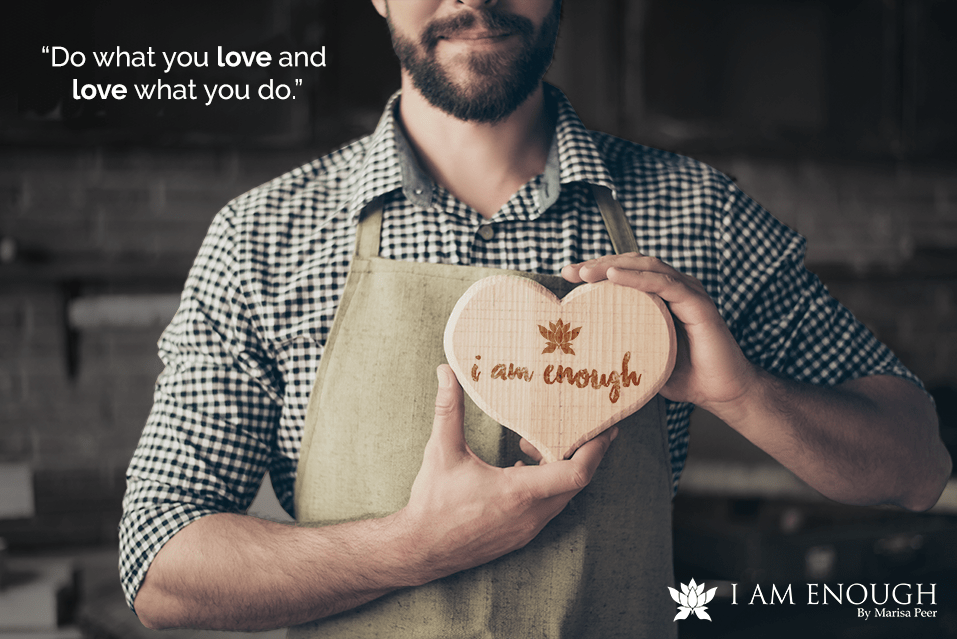
In her book ‘Ultimate Confidence’, Marisa says: “Evidence has shown that when people don’t follow their inner yearnings or do what they love, this can create depression. When people don’t take up the career they have a calling for, or a deep need to be involved in, this can lead to sadness, apathy and actual illness. So much depression is down to people not doing what they want to with their lives and suffering because of it.”
You may think that taking time out to do the things we enjoy – whether that’s a hobby, meeting up with friends, watching a movie or getting pampered – are little ‘luxuries’ that are ‘nice to have’. However, actually they are essential to our health and wellbeing. We need to re-prioritise self care as health care.
Do The Things That Move You

Doing gentle exercises for the body and mind, such as meditation, yoga, tai chi, and mindfulness really helps get the body in a relaxed healing state. It helps your mind to switch off and just enjoy being in the moment, just like when we get into a flow state during hypnosis, or when listening to relaxing audios and music. This helps quieten the mental chatter of our overactive, thinking conscious mind and allows our body to replenish, realign and restore.
When we relax our body and mind, we activate the parasympathetic nervous system, or the ‘relaxation response’, which puts our body in a natural healing state. In contrast, when the body is stressed or in an anxious state we are not in a healing state. Stress activates the sympathetic nervous system (AKA “fight or flight”), which releases cortisol, adrenaline and other stress hormones into the body. If these are not physically ‘burned off’ through ‘fight or flight’, then they can cause havoc on our bodies long term. Sustained stress and anxiety has been linked to a wide range of chronic illness and disease.
Relax Your Way To Health
Simple breathing exercises, visualisations or listening to a relaxation audio can help combat stress and activate the parasympathetic nervous system/healing state.
It’s not enough to just get rid of the stresses in your life. It’s love and joy in life that truly fulfils. You don’t find happiness externally or need anyone else to love you, happiness comes from within when you Learn to Love Yourself.
There’s also a lot to be said for slowing down, relaxing and listening to our bodies. Reconnecting to what is really important to us and our well being, then taking gentle positive steps in the direction of our dreams. When it comes to the importance of our gut, it’s not just about what we put into our bodies through food, but also listening to intuition and how to trust your gut instincts. Its about tuning in and following your own inner guidance, you are more powerful than you realize.
How To Be Healthy – Eat, Think, Do
If we are what we eat think and do, then we have a lot more control over our bodies and health then we may initially realise. You are in control of what you put into your body and mind and you can take positive action to do what’s important to lead a happy, healthy and fulfilled life.
If you want more support as you begin your journey towards a happier, healthier you, then why not consider joining Marisa Peer’s 12-Week Dietless Program?
When you sign-up you will receive daily training for as well as audios and meditations to help support your transformation. You will also become part of a thriving community of like-minded people all striving towards the same healthier lifestyle as yourself.
Undo your negative eating habits, wave goodbye to dieting, and develop a healthy relationship with your mind, your body, and what nourishes it. Click below to find out more about the program.
